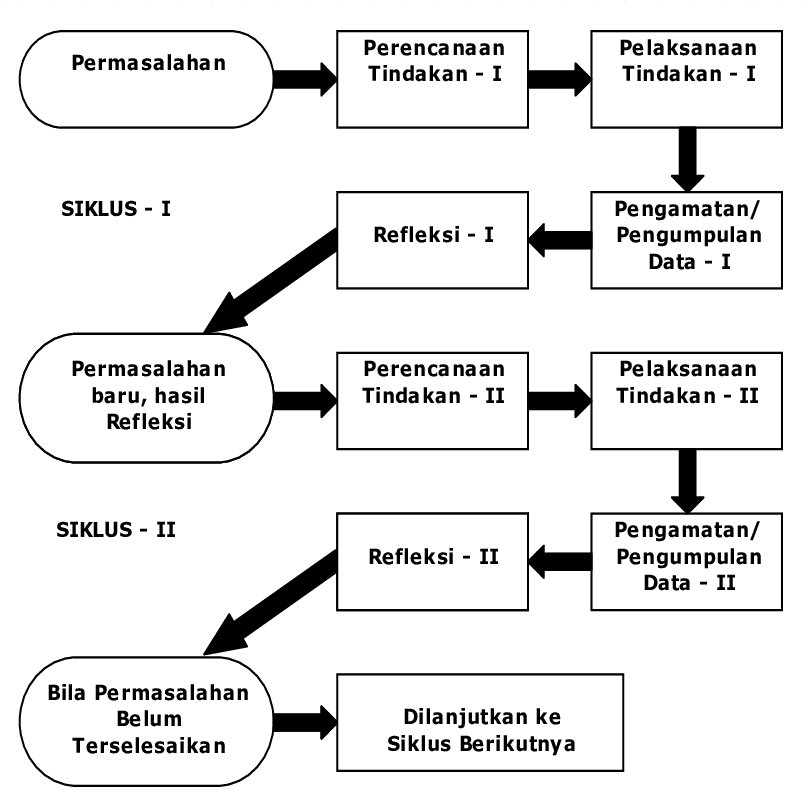Upaya Meningkatkan Hasil Belajar Matematika Siswa dengan Menggunakan Model Pengajaran Langsung
https://doi.org/10.51574/kognitif.v4i3.2005
Keywords:
Hasil Belajar Matematik, Persamaan Linear Satu Variabel, Model Pengajaran LangsungAbstract
Beragam upaya dilakukan untuk meningkatkan hasil belajar siswa, salah satunya melalui penerapan model pembelajaran langsung. Penelitian ini bertujuan untuk mengetahui seberapa besar peningkatan hasil belajar siswa dan aktivitas pembelajaran dengan penerapan Pembelajaran model pengajaran langsung. Kami menggunakan Penelitian Tindakan Kelas (PTK) dengan melibatkan 34 siswa SMP Negeri 4 Siborongborong. Kami mengumpulkan data melalui tes hasil belajar dan observasi yang semuanya telah divalidasi secara valid dan reliabel. Hasil penelitian menunjukkan bahwa setelah penerapan model pengajaran langsung, pada tes awal diperoleh hasil belajar siswa masih tergolong sangat rendah hal ini dilihat dari 34 siswa yang mengikuti tes awal diperoleh 2 orang siswa (5,88%) telah mencapai ketuntasan belajar. Pada tes hasil belajar siklus I diperoleh 19 orang siswa(56%) telah mencapai ketuntasan belajar. Pada tes hasil belajar siklus II diperoleh 31 orang siswa(91%) telah mencapai ketuntasan belajar. Jadi dapat disimpulkan bahwa penggunaan model pengajaran langsung dapat meningkatkan hasil belajar siswa.
Downloads
References
Bos, R., Doorman, M., & Piroi, M. (2020). Emergent models in a reinvention activity for learning the slope of a curve. Journal of Mathematical Behavior, 59(February), 100773. https://doi.org/10.1016/j.jmathb.2020.100773
Clements, D. H., Sarama, J., Baroody, A. J., & Joswick, C. (2020). Efficacy of a learning trajectory approach compared to a teach-to-target approach for addition and subtraction. ZDM - Mathematics Education, 52(4), 637–648. https://doi.org/10.1007/s11858-019-01122-z
Cook, J. P., Reed, Z., & Lockwood, E. (2022). An initial framework for analyzing students’ reasoning with equivalence across mathematical domains. Journal of Mathematical Behavior, 66(February), 100935. https://doi.org/10.1016/j.jmathb.2022.100935
Cuevas-Vallejo, A., Orozco-Santiago, J., & Paz-Rodríguez, S. (2023). A learning trajectory for university students regarding the concept of vector. Journal of Mathematical Behavior, 70(February 2022), 0–1. https://doi.org/10.1016/j.jmathb.2023.101044
Ekowati, D. W., Azzahra, F. Z., Saputra, S. Y., & Suwandayani, B. I. (2021). Realistic mathematics education (RME) approach for primary school students’ reasoning ability. Premiere Educandum : Jurnal Pendidikan Dasar Dan Pembelajaran, 11(2), 269. https://doi.org/10.25273/pe.v11i2.8397
Eriksson, H., & Sumpter, L. (2021). Algebraic and fractional thinking in collective mathematical reasoning. Educational Studies in Mathematics, 473–491. https://doi.org/10.1007/s10649-021-10044-1
Habsyi, R., R. M. Saleh, R., & Isman M. Nur. (2022). Pengembangan E-LKPD Berbasis Guided Dicovery Learning untuk Meningkatkan Kemampuan Berpikir Kritis Siswa. Kognitif: Jurnal Riset HOTS Pendidikan Matematika, 2(1), 1–18. https://doi.org/10.51574/kognitif.v2i1.385
Huang, R., Zhang, Q., Chang, Y. ping, & Kimmins, D. (2019). Developing students’ ability to solve word problems through learning trajectory-based and variation task-informed instruction. ZDM - Mathematics Education, 51(1), 169–181. https://doi.org/10.1007/s11858-018-0983-8
Huang, X., Huang, R., & Bosch, M. (2021). Analyzing a teacher’s learning through cross-cultural collaboration: a praxeological perspective of mathematical knowledge for teaching. Educational Studies in Mathematics, 107(3), 427–446. https://doi.org/10.1007/s10649-021-10057-w
Jankvist, U. T., & Niss, M. (2020). Upper secondary school students’ difficulties with mathematical modelling. International Journal of Mathematical Education in Science and Technology, 51(4), 467–496. https://doi.org/10.1080/0020739X.2019.1587530
Lehmann, T. H. (2023). Using algorithmic thinking to design algorithms: The case of critical path analysis. Journal of Mathematical Behavior, 71(August 2022), 101079. https://doi.org/10.1016/j.jmathb.2023.101079
Ma’rufi, Ilyas, M., Salwah, Pasandaran, R. F., & Ikram, M. (2020). Exploration of pre-service teachers’ pedagogical content knowledge in mathematics learning in senior high school based on gender and academic skills. Journal for the Education of Gifted Young Scientists, 8(4), 1361–1371. https://doi.org/10.17478/jegys.780399
Malalina, Indra Putri, R. I., Zulkardi, & Hartono, Y. (2023). Developing mathematics teaching materials using maritime context for higher-order thinking in junior high school. Journal on Mathematics Education, 15(1), 173–190. https://doi.org/10.22342/jme.v15i1.pp173-190
Nur, M. A. (2024). Meta Analisis Pengaruh Model Pembelajaran Contextual Teaching and Learning (CTL) terhadap Hasil Belajar Matematika Siswa Sekolah Dasar. Kognitif: Jurnal Riset HOTS Pendidikan Matematika, 4(May), 151–160. https://doi.org/https://doi.org/10.51574/kognitif.v4i1.1409
Purnomo, Y. W., Pasri, Aziz, T. A., Shahrill, M., & Prananto, I. W. (2022). Students’ failure to understand fraction multiplication as part of a quantity. Journal on Mathematics Education, 13(4), 681–702. https://doi.org/10.22342/jme.v13i4.pp681-702
Susanta, A., Sumardi, H., Susanto, E., & Retnawati, H. (2023). Mathematics literacy task on number pattern using Bengkulu context for junior high school students. Journal on Mathematics Education, 14(1), 85–102. https://doi.org/10.22342/JME.V14I1.PP85-102
Voigt, M., Fredriksen, H., & Rasmussen, C. (2020). Leveraging the design heuristics of realistic mathematics education and culturally responsive pedagogy to create a richer flipped classroom calculus curriculum. ZDM - Mathematics Education, 52(5), 1051–1062. https://doi.org/10.1007/s11858-019-01124-x

Downloads
Published
How to Cite
Issue
Section
License
Copyright (c) 2024 Herlina Simangunsong

This work is licensed under a Creative Commons Attribution-ShareAlike 4.0 International License.
Education and Talent Development Center of Indonesia (ETDC Indonesia)
e-mail: kognitif@gmail.com, website : https://etdc-indonesia.com

Kognitif: Jurnal Riset HOTS Pendidikan Matematika dengan Situs: https://etdci.org/journal/kognitif berlisensi Creative Commons Attribution-ShareAlike 4.0 International License









.png)

